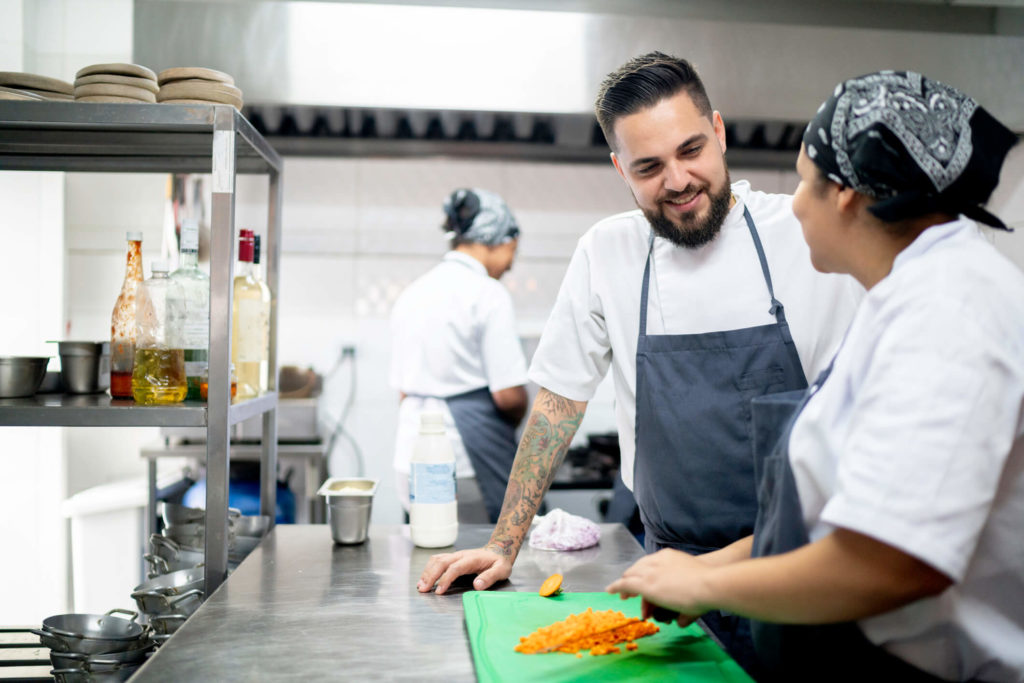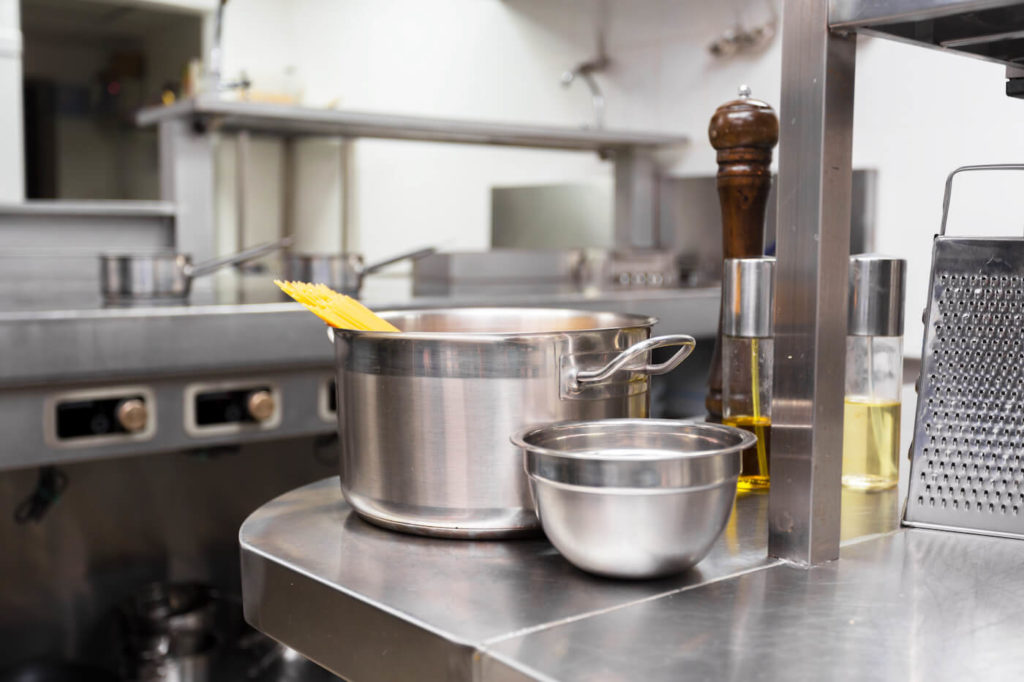Just like any other job, working in a professional kitchen can have its little frustrations. To start your culinary career off on the right foot, it helps to know which pitfalls really get the chef’s blood boiling, so you can work to avoid them!
So who could we ask about these irritants? How about the Chef Instructors at Auguste Escoffier School of Culinary Arts? This team of professional mentors has untold years of restaurant, resort, hotel, and catering experience behind them, so we asked them to “get real” with us about their pet peeves in the professional kitchen.
We combined everything we found into some common themes to share with you. By avoiding them, you just may be able to become the executive chef’s stand out employee.
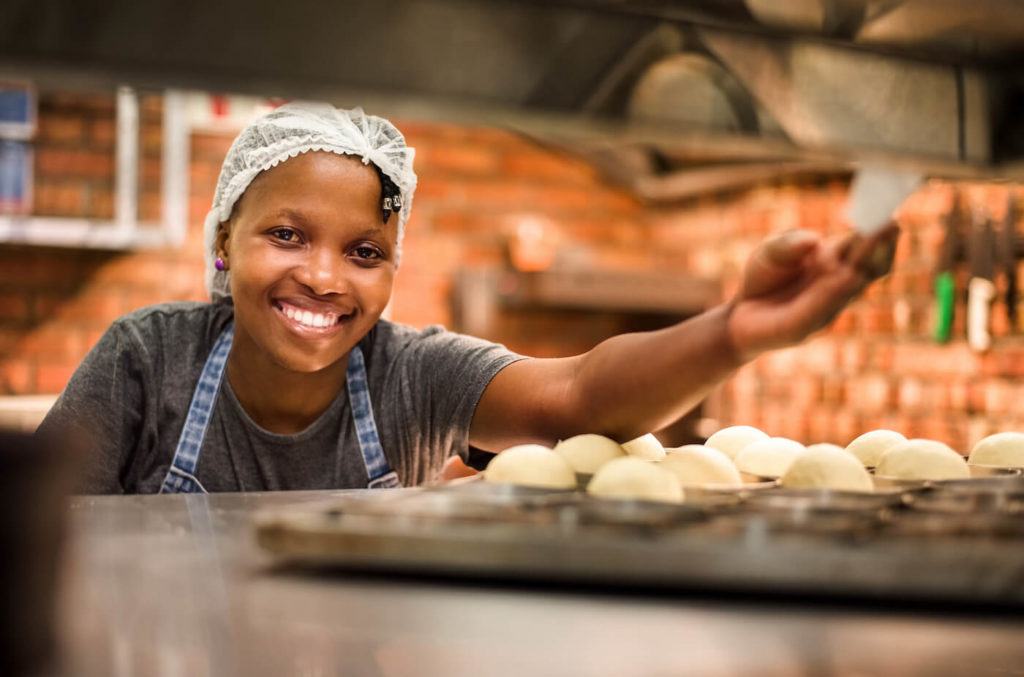
Lack of Spatial and Team Awareness
It’s a busy night, and there’s a special birthday party happening out in the dining room. The pastry chef made a one-of-a-kind cake masterpiece for the VIP guest, complete with a personal message piped out on top. It’s your responsibility to get it out of the walk-in, so their server can bring it to the table at the perfect moment.
Your eyes are on the cake, making sure to keep it steady — so you don’t see your coworker kneeling in the walkway, reorganizing the lowboy refrigerator. You walk right into him…and the special cake goes flying…right into the face of the executive chef.
It may sound like a scene from a Three Stooges movie, but in a fast-paced, busy kitchen, it’s not out of the realm of possibility! Kitchen staff must always be aware of what’s going on around them. At the most basic level, this includes communicating with the team about your location and “status” at all times with these techniques:
- Say “behind” when walking behind a coworker
- Announce “corner” when coming around a blind corner
- Say “hot pan” or “hot pot” when walking through the kitchen with a piece of cookware just off the grill
- Knock on the walk-in door when exiting, to alert anyone outside the door that it’s about to be opened
- Respond “Yes, chef!” when you hear a directive from the chef
These tools keep cooks and chefs safe. But physical awareness isn’t quite enough. “In a professional kitchen,” says Former Escoffier Pastry Arts Chef Instructor Steve Konopelski, “you are a member of a team, and you need to be aware of everything that is going on around you. Not just your job, but how your work can affect the way that other people work.”
This means if a team member is in the weeds, you help them out until they catch up. It means keeping an eye on another station and waiting to pull that side dish out of the oven if the steak needs another minute. It means always, always keeping an ear open for calls from the executive chef or the expeditor.
“Teamwork is dream work, and you need to have one eye and one ear on everyone else in the space at all times.”
Chef Steve Konopelski, Former Escoffier Pastry Arts Chef Instructor
Not Enough Passion for the Chef’s Life
For many people working in a professional kitchen, this is their career. They are passionate and devoted to their work. And even if they don’t plan to work as cooks forever, they see a future for themselves in an alternative culinary career.
But inevitably, there will be some people working in a kitchen who don’t see food and cooking as their capital-C-career. For them, it’s simply a job. Now, there’s nothing wrong with that. In fact, the restaurant industry couldn’t run without some employees who aren’t in it for the long haul. But that lack of passion can be frustrating for people to those who are dedicated to the craft.
It’s one of the biggest pet peeves of the Escoffier Chef Instructors — hardly surprising among a group who have dedicated their lives to not only creating great food, but teaching the next generation of chefs how to do the same.
“My biggest pet peeve about working in a professional kitchen is working with people who just don’t care about the quality of the food they’re putting out.”
Chef Jason Goldman, Escoffier Lead Chef Instructor
Fortunately for the career cook or chef, that means their passion will help them stand out among the people who are just in the kitchen for a paycheck. “All you can do is lead by example and push them to strive for the best,” says Chef Instructor Jordan Brown.
Take a page out of Chef Jordan’s book and lead by example. By bringing enthusiasm, passion, and attention to detail to your daily work, you’ll both impress the executive chef and may help inspire some of the less devoted employees to step up their game.
Lateness and Unreliability Are Cook Kryptonite
Want to delight the executive chef to no end? Show up for every shift clean, on-time, and ready to work. Being reliable and timely sounds like an easy ask, but can be surprisingly hard to find consistent and punctual staff!
“Meeting deadlines and being on time are imperative to success in the foodservice industry.”
Chef Luke Shaffer, Escoffier Culinary Arts Instructor
When a cook is late for their shift, it can set the whole team behind, creating a race to catch up before service. Arriving on time can help with a smooth transition from a day shift to a night shift, and gives the team enough time to get set up and organized before the printer starts spitting out tickets.
At Escoffier, culinary students get plenty of practice on their punctuality! They’re expected to arrive dressed in a neat and clean uniform, on-time, with any required prep work done in advance. After 15 months of practice, Escoffier graduates should have timeliness down pat!
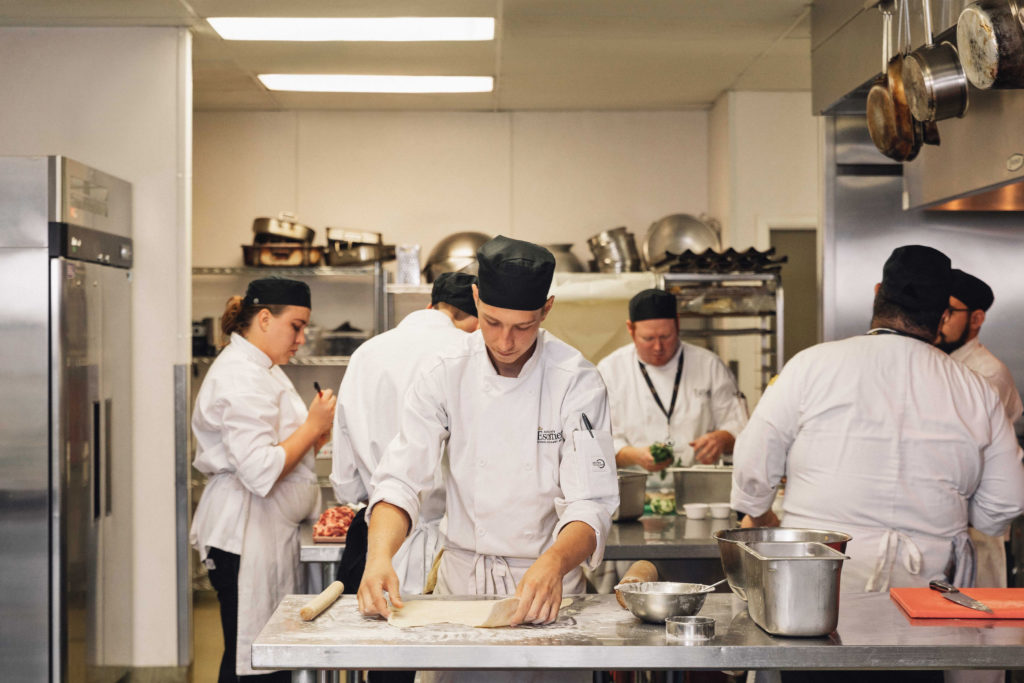
Not Working as a Team With Other Departments
Sometimes there can be a little “friendly rivalry” between front of house (FOH) and back of house (BOH). And when it’s not kept in control, that rivalry can get in the way of necessary teamwork.
While the FOH and BOH know that they have to work together to create a good guest experience, there can be some friction. Cooks get frustrated with servers for mistakes in their orders, or servers think the food is taking too long to come out of the kitchen.
“They are a team. When one fails, they all fail.”
Chef Matthew Fairfield, Escoffier Culinary Arts Instructor
For the person in charge of the kitchen, bickering between staff members can be a pain point, especially when it’s within the kitchen departments. Arguments between prep and line cooks, or pastry and culinary cooks can slow down the whole team.
“Even within the department there can be competition,” says Pastry Arts Chef Instructor Anastasia Malone. “I don’t think it’s necessary. I always tried to encourage my staff to work as a team and act like a family. It creates a much better work environment.”
Communication is key. Getting that practice in culinary school can lay a good foundation for the right way to interact with your coworkers during service. At Escoffier, associate degree students will also study Business & Professional Communications, with the goal of becoming more effective communicators.
And they get to put those communication and teamwork skills to the test in their industry externships. All Escoffier students complete at least one externship in a professional kitchen or bakery during their program. This experience serves as a resume builder and lets students see how everything they’ve learned comes together on the job.
Confidence is Great! Arrogance is Not.
Confident cooks know that they’ve earned their skills through hard work and study, but they’re still open to feedback and education. It’s an internal self-assurance that doesn’t require any outward boasting or proof of abilities.
Arrogant cooks are always trying to prove to others that they know their stuff, often to the detriment of their continuing improvement. How can you learn anything new if you resent corrections from supervisors or coworkers who have more experience?
As a former Escoffier Pastry Arts Chef Instructor once said, “Arrogance can cause unnecessary chaos in a kitchen, [and it’s] frustrating to deal with. We have all had to cook with the Ron Burgundys of the kitchen world.”
So when you work in a professional kitchen, be humble and check your ego at the door. Remember that there’s always more to learn, and puffing yourself up doesn’t endear you to the rest of the team!
Messiness and Disorganization
More than anything else, chefs hate mess. Here’s what many Escoffier Chef Instructors said was their ultimate pet peeve:
“When people don’t clean as they go.”
“People not cleaning as they go.”
“Lack of cleanliness/organization.”
“When others work at your station and leave it dirty or disorganized.”
“Keep the sink clean!”
A messy station is a recipe for disaster! It can throw their whole line into disorder and slow down the kitchen operations. The results can be unsanitary work surfaces, cross-contaminated sauces and garnishes, or messy plating.
A clean kitchen is a happy one. Cooks are expected to clean as they go, wiping up spills and sending dirty dishes back to the dish pit as they become soiled.
Culinary and pastry arts students at Escoffier get a crash course in keeping their workspace clean during their Culinary Foundations or Fundamentals of Baking course. They explore concepts of mise en place and sanitation, which they then carry with them throughout the rest of their coursework and into the workplace.
Pet Peeves — and Real Joys
Sure, there are irritants in the professional kitchen, just like any other workplace. But it’s not all — or even mostly! — bad news.
Chef Instructor NaDean Johnson couldn’t think of a pet peeve at all. “I miss kitchen life like crazy,” Chef NaDean says. “Restaurants were some of the most fun places I have had the opportunity to work and learn in. The ability to put your head down and focus on tickets and creating beautiful dishes during a busy service was amazing, and the camaraderie and family you build in a kitchen is unlike any other.”
Work with mentors like these with a degree or diploma from Escoffier! They have more wisdom to share, if you are ready to start your culinary path.
To learn more about careers in Culinary Arts, read these articles next:

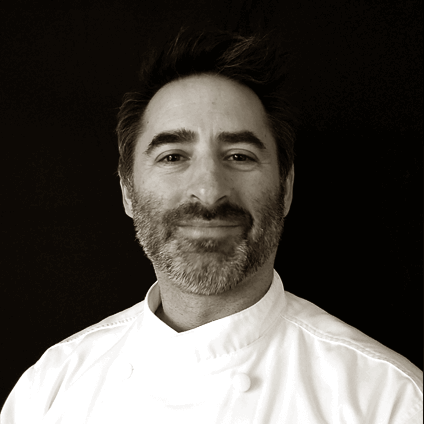 “My biggest pet peeve about working in a professional kitchen is working with people who just don’t care about the quality of the food they’re putting out.”
“My biggest pet peeve about working in a professional kitchen is working with people who just don’t care about the quality of the food they’re putting out.”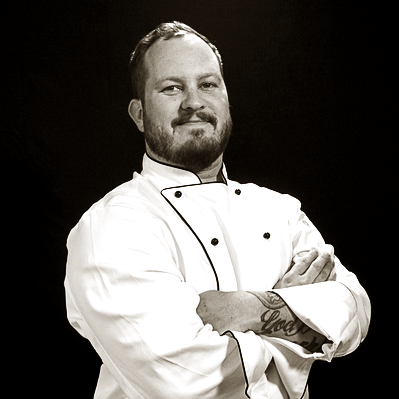 “Meeting deadlines and being on time are imperative to success in the foodservice industry.”
“Meeting deadlines and being on time are imperative to success in the foodservice industry.”